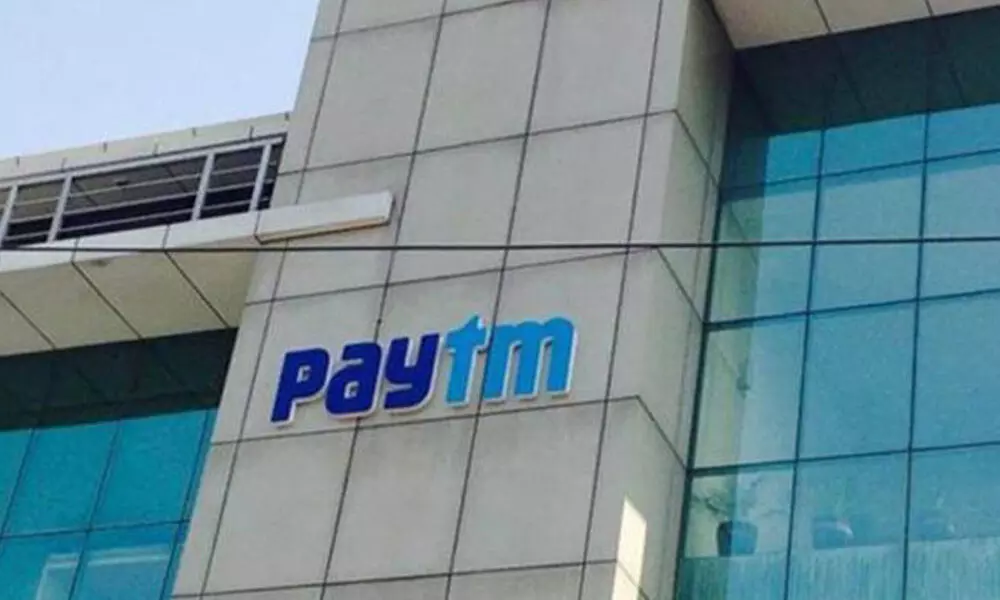Paytm brand image at stake
Banking regulator RBI’s measures against digital payments facilitator leaving significant impact on brand value and loyalty
image for illustrative purpose

Policy Headwinds
- RBI on March 11 barred Paytm's payments bank from onboarding new customers
- Further, it asked Paytm to undertake an IT audit
- Stock price in the bull case, may rise to Rs920 to Rs1,000 in next six months
- In the bear case, the target is Rs600 to Rs680
- Analysts forecast buying opportunity after further fall of 5%
Mumbai: Even as Paytm shares plummet on the stock exchanges post the restrictions imposed by RBI, experts opine that it will lead to a significant impact on brand and loyalty. Still, they believe that in the long term, the price will appreciate if business improves and good topline and bottom lines are reported.
The central bank earlier this month barred Paytm's payments bank from onboarding new customers and asked the company to undertake an IT audit. Vijay Shekhar Sharma of Paytm was arrested in Delhi on February 22 and later released on bail in a case of rash driving.
Talking to Bizz Buzz, Manoj Dalmia, founder and director, Proficient Equities, says that RBI's action would lead to a significant impact on brand and loyalty.
Yes these regulatory actions would create a huge impact on stock in terms of price, but in terms of business it would not be substantial, he said. However, he was quick to add that in the long term, the price will appreciate if business improves and good topline and bottom lines are reported.
He expects the stock to fall till Rs641 and further downward till it finds support. The outlook looks bearish as the management is not clear in terms of business and its strategy, disappointing shareholders from the day of listing.
Advising retail shareholders, he says investors should reduce exposure to new age stocks like Paytm, Zomato as they faced several selling pressures from investors, the valuations they ask for are huge and are based on future business scope and not on present business. One may keep a small portion allocated in these stocks and go for other established businesses in small and midcap sectors with a strong business framework.
Ravi Singhal, vice-chairman at GCL Securities, says: "Yes, although not by much, usually up to 10 per cent in the near term. However, if RBI limitations stay in place for an extended period of time, this will be an issue. In the bull case, the target for the next six months is up to Rs920 to Rs1,000, while in the bear case, the target is Rs600 to Rs680. These are all make-or-break stocks.
If you have patience and a long-term view of more than five years, you can invest up to 7 per cent of your risk capital. Yes, although not by much, usually up to 10 per cent in the near term. However, if RBI limitations stay in place for an extended period of time, this will be an issue.
In the bull case, the target for the next six months is up to Rs920 to Rs1,000, while in the bear case, the target is Rs600 to Rs680.
Ravi Singh, head (research) and vice-president, Share India, says: "Paytm's recent ban on adding new customers due to likely gaps in its technology systems is definitely going to hurt the business sentiments. The immediate impact will be negative. However, Paytm has already on boarded a very large customer base onto the payments bank, but the ban may affect their chances of upgrading to a small finance bank. The stock may see more selling pressure and may touch the level of Rs500 in the medium term."
The overall market is in correction mode. New age internet stocks like Zomato, Nykaa, or Paytm are also facing massive selling pressure. This may continue for some more trading sessions. However, a buying opportunity may arise if these stocks fall another three–five per cent, he added. Investors may take a fresh entry, keeping a view of the long term.
Regulatory actions would create a huge impact on stock in terms of price, but in terms of business it would not be substantial
- Manoj Dalmia, founder and director, Proficient Equities

